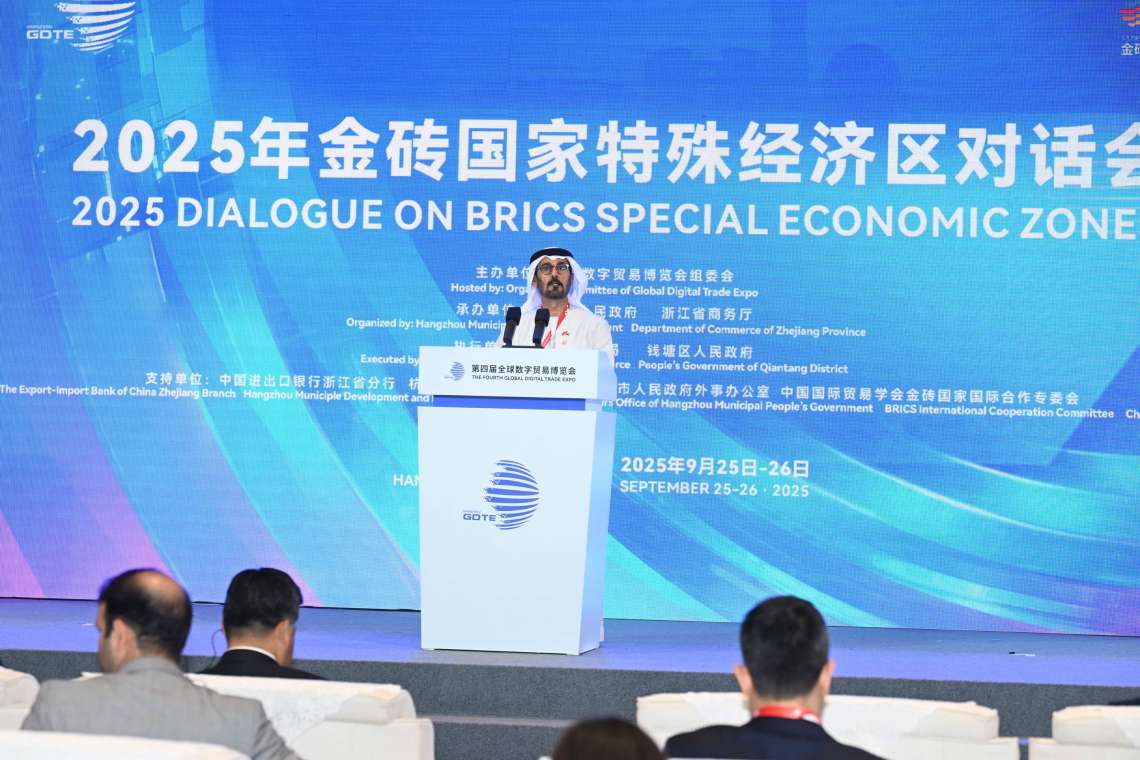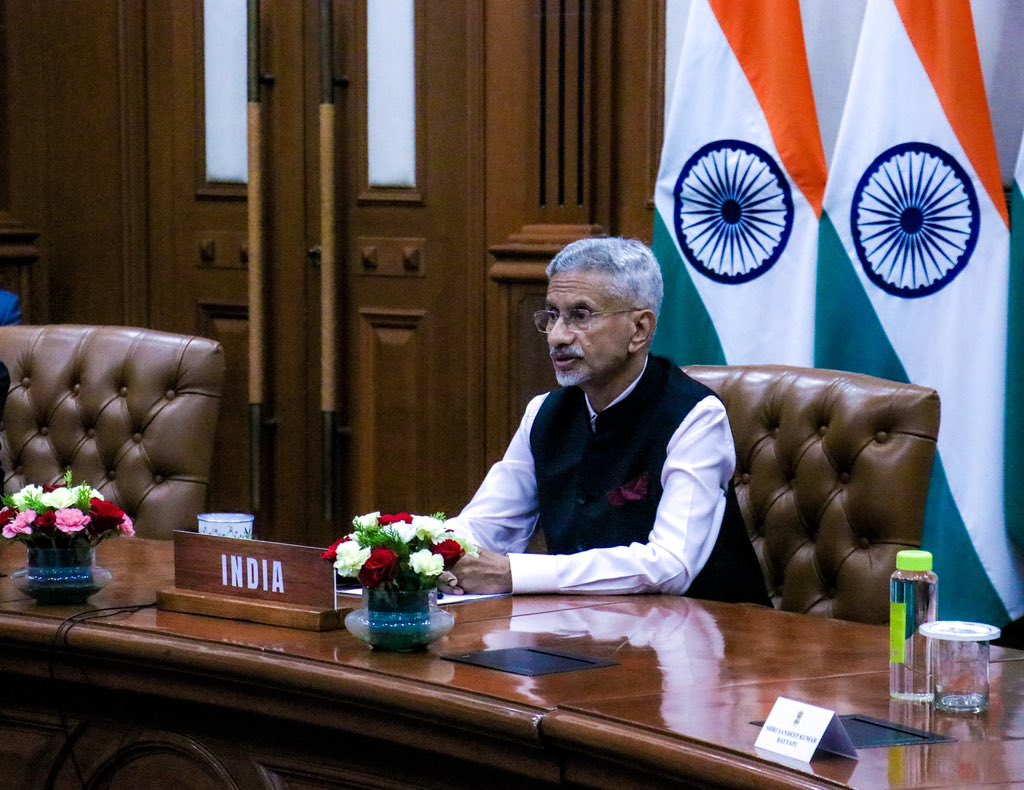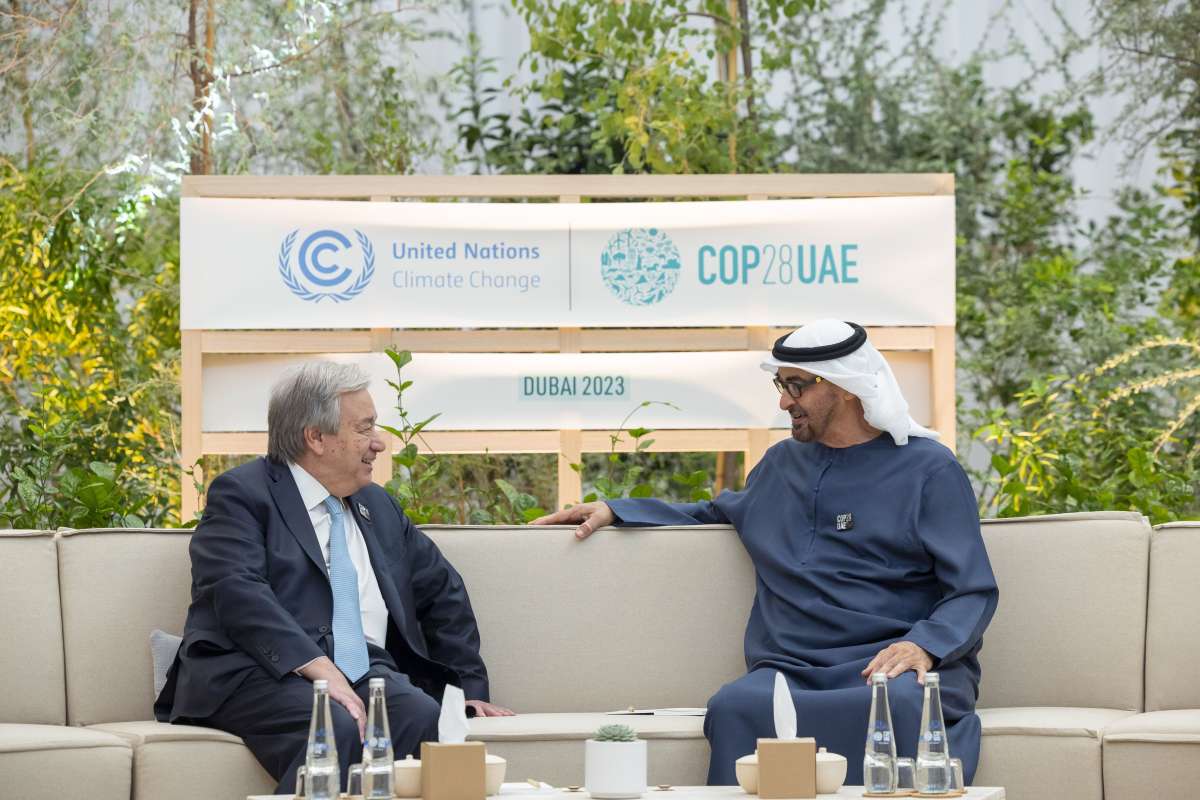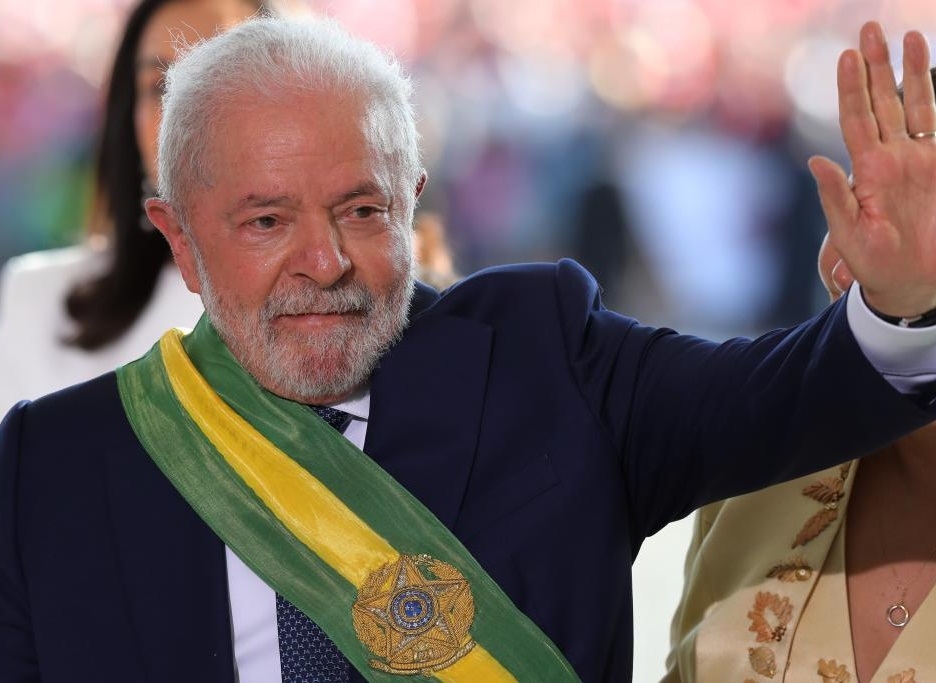As Russia prepares to assume the BRICS Presidency, it remains committed to engaging in ongoing discussions with its partners on ensuring a just energy transition….reports Asian Lite News
The BRICS nations are actively collaborating to accelerate sustainable finance within the group and implement joint climate and sustainability projects. This effort hinges on harmonising their ESG (environmental, social, and governance) financial infrastructure.
Harmonisation is crucial for bolstering investor confidence and reducing barriers to capital flow. In situations where the global financial system falls short in providing adequate inclusive climate investments for developing nations, the BRICS initiative takes on even greater significance.
A session addressing this topic will be held at the Russian Pavilion during the now-running COP28 on 6th December titled, “Ahead of the Russia’s BRICS Presidency: Developing energy cooperation for a just energy transition”. It will delve into the results of the BRICS Energy Research Cooperation Platform’s work in 2023. Focus areas include energy security, training personnel for the energy sector, developing national energy transition models, and charting the course for energy dialogue during Russia’s BRICS Presidency in 2024.
A more comprehensive session will be held on December 12th also at the Russian pavilion titled “Harmonisation of responsible finance infrastructure in BRICS countries: Paving the way to a common sustainable future”. Speakers will explore joint actions necessary for mobilising climate and sustainable financing. Additionally, participants will discuss opportunities for developing and implementing common recommendations, standards, and requirements in the field of sustainable finance, aligning with BRICS countries’ sustainable development priorities.
The session will also propose key steps towards harmonising ESG finance infrastructure. A panel of distinguished speakers representing BRICS financial institutions, government officials, and leading research institutions will lead the discussion.
As Russia prepares to assume the BRICS Presidency, it remains committed to engaging in ongoing discussions with its partners on ensuring a just energy transition.
With the UAE’s recent official accession to BRICS, the group strengthens its commitment to multilateral action and constructive dialogue. This platform provides a powerful voice for developing and emerging economies on the global stage.
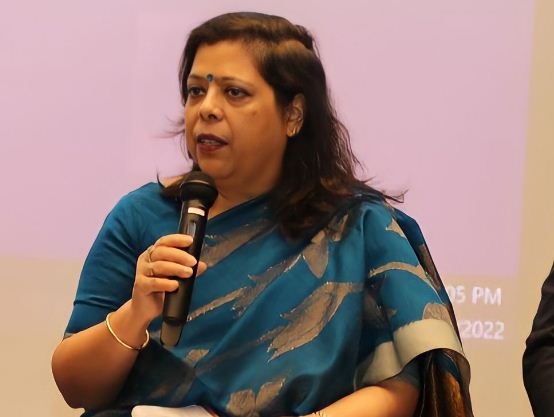
‘India Will Set Narrative to Grow Responsibly & Sustainably’
India will set the narrative on how to grow responsibly and sustainably, said the secretary at the Ministry of Environment, Forest and Climate Change Leena Nandan.
Speaking at a side event on ‘India’s journey towards sustainable cooling’ at the India Pavilion, on the sidelines of the COP28 in Dubai, she said that nothing is a better display of this resolve than India’s current status in terms of Nationally Determined Contributions for climate mitigation.
Elaborating, she said, “When India had announced NDCs in 2015 we envisaged 33-35 per cent emission intensity reduction by 2030, but we have pushed its efforts in a big way. While India has continued to grow, it has also progressively decoupled emissions from economic growth and this has resulted in the achievement of a 33 per cent reduction in emission intensity of GDP in 2019 itself.”
The Secretary credited this success to a parallel push India has given to renewable energy for its requirements.
“We have gone on to scale up our climate ambitions. The NDCs updated last year reflect our concern that we indeed as a global fraternity need to do much more to tackle climate change,” she added.
“Going forward, we need to bolster our efforts and be at the forefront of change, and research on coolants that would be most appropriate to Indian climatic conditions.” This research, she added, should be matched with the dialogue with industry to cause quick off-take and scaling up of this technology.
The India Pavilion at COP28 showcased India’s success in achieving targets and its roadmap towards creating sustainable cooling for overall environmental sustainability.
India, at COP26 in 2021, committed to an ambitious five-part “Panchamrit” pledge. They included reaching 500 GW of non-fossil electricity capacity, generating half of all energy requirements from renewables, to reducing emissions by 1 billion tonnes by 2030.
India also aims to reduce the emissions intensity of GDP by 45 per cent. Finally, India commits to net-zero emissions by 2070. (ANI)




